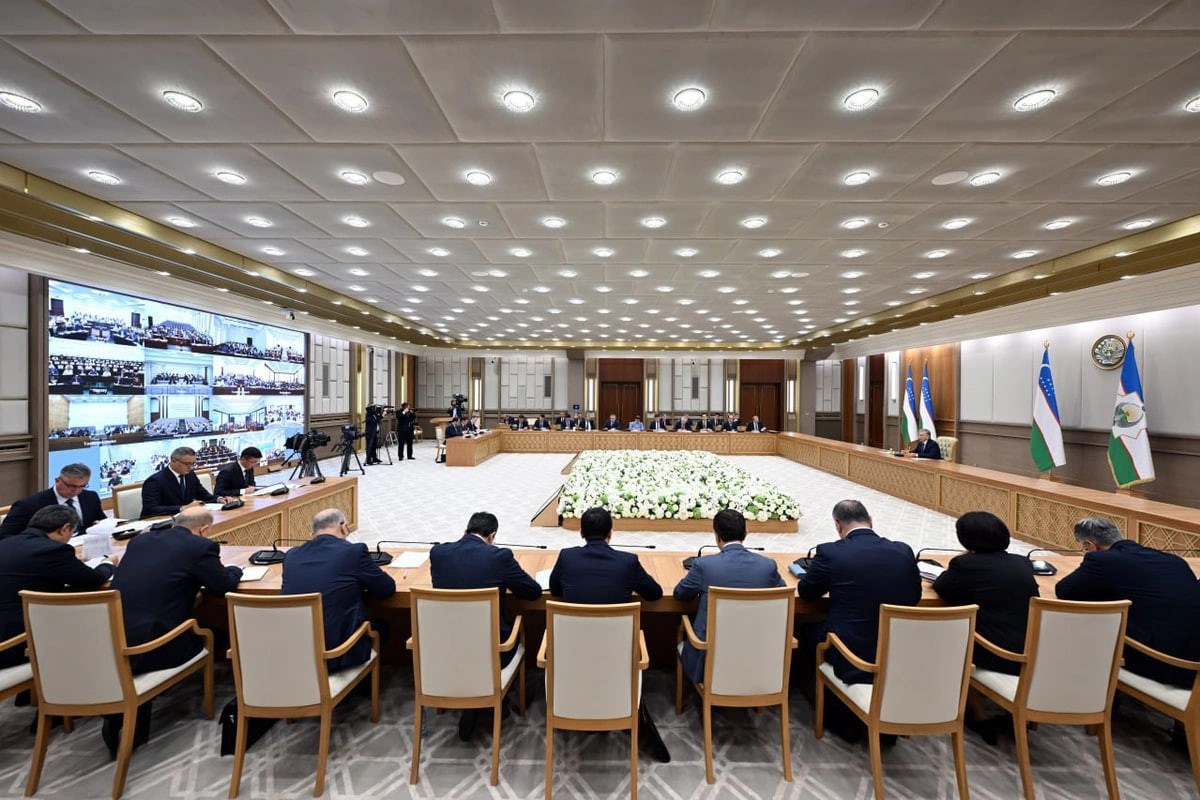News
Shock 100 days. How will textile enterprises support in Uzbekistan
The President of Uzbekistan announced the launch of “shock 100 days” to support the textile industry, where the enterprises owed $ 2.2 billion on a loan. Among measures - a write -off of 377 billion of penalties, extension of loans for clusters, subsidies to farmers and reducing a social tax rate of up to 1% and others.
In the textile industry of Uzbekistan, “shock 100 days” are announced. This was announced at a meeting on the support of the textile industry on August 13, President Shavkat Mirziyoyev stated.
On behalf of the president, the opinions of more than 200 entrepreneurs working in the textile industry were studied.
“I got acquainted in detail with the problems that bother them. Now I will voice the decision. From today, in the textile industry we announce “shock 100 days”, ”the head of state said.
First of all, measures were defined to financial improvement of enterprises with a worsening position and a decrease in the cost of production.
This year, clusters are allowed to extend the deadline for paying off credit debts up to 5 years, subject to the provision of collateral.
In this case, clusters will only pay the main debt, and the interest accrued in favor of the Agricultural and Banks Fund will begin to be charged after the full repayment of the main debt. This will allow clusters at the disposal of up to 800 billion of working capital sums per year.
If the cluster repays both the main debt and interest on time, half of the part of the interest intended for the fund will be returned to the entrepreneur.
According to Mirziyoyev, clusters will also write off 377 billion soums of interest accrued as of August 1 to loans issued for the crop of 2022–2023.
In addition, measures will be developed for the financial recovery of 144 enterprises that have loan obligations in the amount of $ 2.2 billion. For enterprises whose activities can be stabilized, the deadline for repayment of loans will extend up to 7 years.
For timely and without losing cotton, farmers will be provided with a subsidy of 1 million soums per ton. If enterprises grow or purchase cotton at their own expense, they compensate for 10% of the cost of raw materials.
Now, for all enterprises of the “textile chain”, the social tax rate will be set at 1%. At the same time, the requirement for the employment of citizens from the register of social protection is canceled, and the minimum share of textile products in sales volume will decrease from 90% to 70%.
Source




